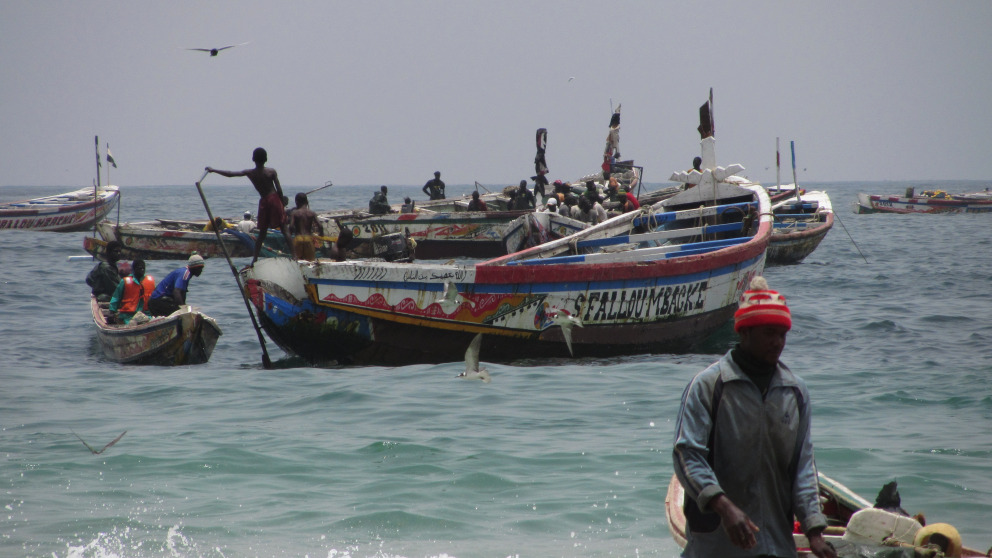Advancing ocean governance: French-German Workshop at the IASS with Federal Environment Minister Peter Altmaier
15.03.2013

Almost two-thirds of the global ocean – the high seas beyond nations’ borders – is without an overarching agreement to protect marine biodiversity or to regulate its sustainable use. In light of this worrying situation, world leaders at the Rio+20 Earth Summit agreed to set a deadline –December 2014– by which time the United Nations will make a decision on how to better protect the high seas.
Leading international experts from the fields of maritime law, maritime policy and marine sciences, together with representatives from government, civil society and international organizations, are gathering from 20-21 March 2013 in Potsdam, Germany, at a joint workshop of the Institute for Advanced Sustainability Studies (IASS) and the French Institute du développement durable et des relations internationales (IDDRI). There, they will clarify options and opportunities, as well as overarching principles, for the protection of the high seas. German Environment Minister Peter Altmaier will take part in the workshop, as will representatives of the French government, alongside the executive directors of IASS and IDDRI, Prof. Klaus Töpfer and Prof. Laurence Tubiana.
The increasing urgency of this situation is reflected in a number of recent high-level policy initiatives; for example, the establishment of an "Oceans Compact" by the United Nations Secretary General, Ban Ki-moon; and, the creation of a "Global Ocean Commission" by an alliance of international funding bodies, NGOs and politicians. German Environment Minister Peter Altmaier has emphasised in his 10-point plan that the oceans are a priority of this government.
The following questions will be addressed in the IASS-IDDRI workshop: Are there innovative tools and approaches that can pragmatically achieve protection and sustainable use of the oceans? How can the Law of the Sea be augmented to fill existing gaps? How can existing global and regional agreements better integrate their work together so that the oceans can better provide nourishment and livelihoods for the world’s fast growing coastal populations?
Three expert working groups will develop short- and medium-term solutions on the following topics:
1) A new legal instrument under the UN Convention for the Law of the Sea
The recent Declaration of the UN Conference on Sustainable Development ("Rio +20") committed that before the end of 2014, a decision would be made on the further development of international maritime law by creating a new legal instrument for the protection and sustainable use of biodiversity on the high seas. This workshop will discuss possible options for the creation of such an instrument and make proposals for next steps. Possible elements that the new agreement could include are: overarching principles, a new institutional framework to address marine genetic resources, marine protected areas, environmental impact studies, the transfer of technology and capacity building.
2) What can be better achieved using existing maritime conventions?
There are already global agreements for shipping, dumping, mining and some fisheries. Against the backdrop of negotiations for a new agreement that may take years, the question arises how existing agreements could better respond to current and upcoming threats to the marine environment. The workshop will hear proposals for better coordination of existing instruments and their interaction with a possible new legal agreement, as well as a re-consideration of existing institutions and how they could be expanded to include the high seas into their mandates. Improving compliance is a key issue. A logical first step would be the adoption by the United Nations of a set of universal principles for the protection and sustainable use of the high seas.
3) How can regional marine conservation organizations be further strengthened?
The workshop aims to formulate concrete proposals for the gradual expansion of regional activities into the high seas, and their better integration with existing global agreements. There are already over 18 coastal regional seas conventions with the participation of more than 143 countries. With the active support of Germany and other countries, as well as WWF, the OSPAR convention for the Northeast Atlantic established the world’s first network of high seas marine protected areas. In July 2013, in Germany (Bremerhaven), there will be a special meeting of the Antarctic regional seas convention (CCAMLR) to find a solution to the difficult issues concerning the establishment of marine protected areas in Antarctica.
The results of the IASS-IDDRI workshop and its three Working Groups will be used to inform the international debate, and to support the work of the United Nations and also the European Union.